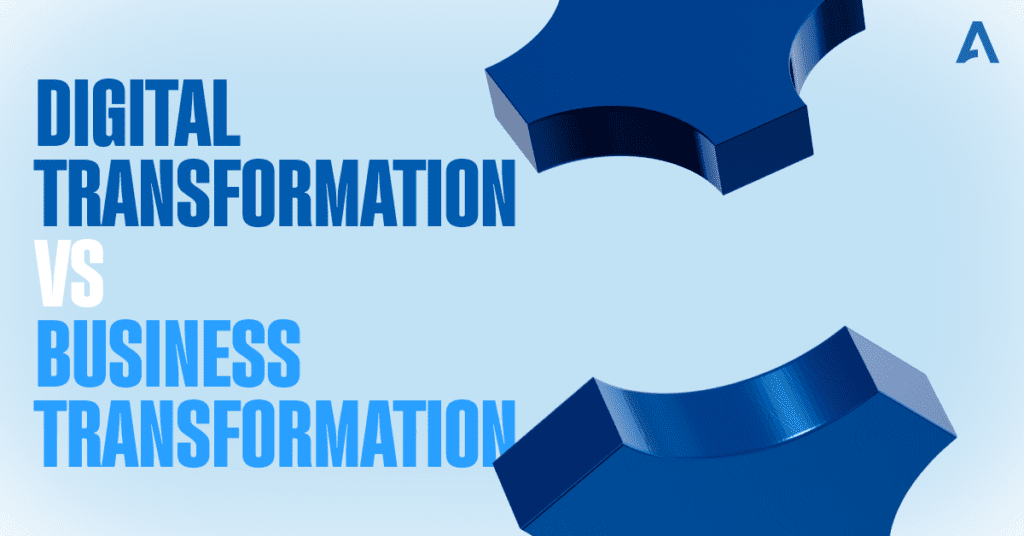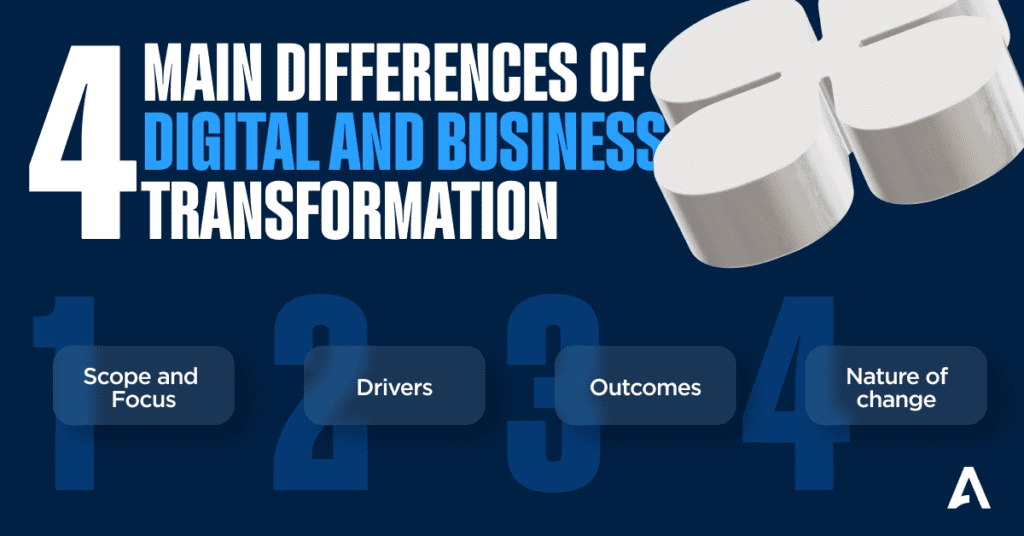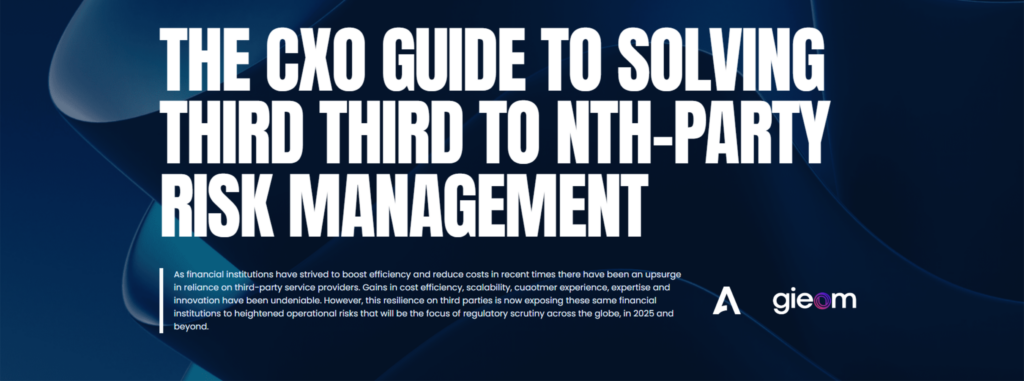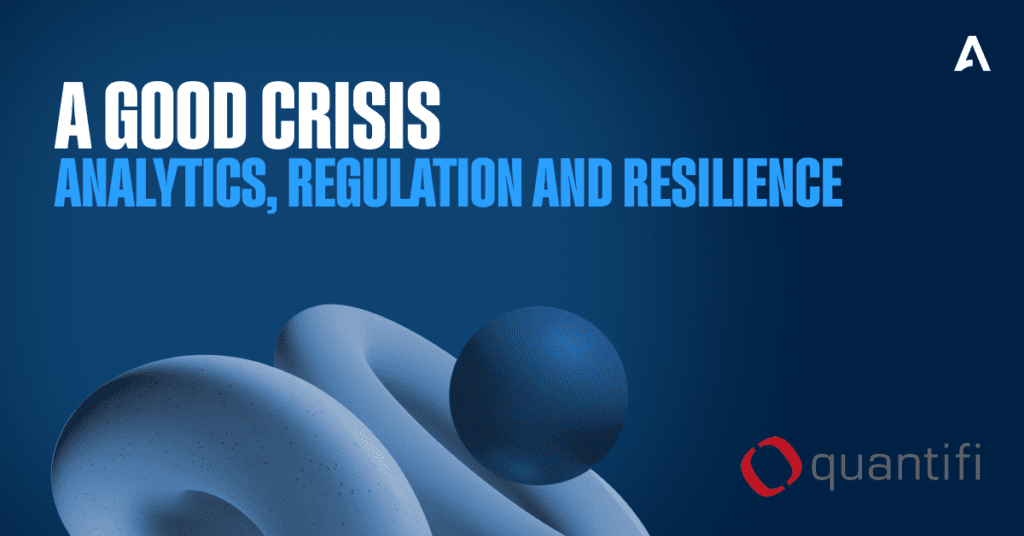
Digital Transformation vs Business Transformation
Every company wants to be as efficient as possible. It is just good for business. So, the pressure to adapt and innovate has turned way up. As a result, companies started adopting new and better strategies like digital transformation and business transformation to keep growing.
While they are very similar and sometimes may be used interchangeably, they are still different. Understanding their differences and similarities will help you implement the right change programme for your organisation.
In this blog, we will teach you all about business transformation vs digital transformation, including their definitions and 4 main differences that set them apart. Let’s get started.
What is business transformation?
Before we delve into the differences between business transformation and digital transformation, we must first understand each one separately.
At its core, business transformation is the holistic approach of changing a company’s strategies, structure, workflows, and much more with the goal of achieving growth and gaining a competitive edge.
The business transformation process starts with research of market dynamics, customer needs, and the organisation’s strategic goals.
Oftentimes, this journey will be made to bring major changes into the company, such as entering a new market, restructuring the organisation from the bottom up, or shifting from being product-centric to customer-centric.
In a nutshell, business transformation is comprehensive and touches every facet of the business to build a truly sustainable advantage over competitors.
What is digital transformation?
While business transformation is an umbrella term, digital transformation is more focused and narrow. It involves the integration of digital technologies into all possible areas of the business.
The main goals of digital transformation include:
-
- Improving the organisation’s operational efficiency
-
- Crafting a truly better customer experience
-
- Creating new business models
This process can encompass anything from AI adoption to cloud computing, and much more. With IT business transformation, the efforts are usually continuous rather than project-based. It aims to instil a culture of innovation and help your company leverage the power of technology.

Having covered both digital transformation and business transformation, let’s now put them head to head and compare their 4 main differences.
From their primary drivers to the nature of change they drive, digital transformation vs business transformation is a discussion worth hearing.
Scope and focus
To put it simply, digital transformation is about technology integration, while business transformation is more about broader strategic changes. In terms of their scope and focus, this is how they differ.
Digital transformation focuses more on updating or fully replacing legacy systems, digitising operations, and generally fostering a digital culture. For example, a retail company can implement an ecommerce platform and start using data analytics when undergoing digital transformation.
As for business transformation, it is more about reevaluating the whole business model, restructuring, and implementing strategic changes. For example, if a manufacturing company wanted to diversify its product line or enter new markets, they could use business transformation to help them become more competitive.
Drivers
The second main difference between digital transformation vs business transformation is the drivers behind their implementation.
In short, digital transformation is often driven by technological advancements, while business transformation is driven by market dynamics and strategic goals.
With digital transformation, a financial services company might be pushed to adopt new blockchain cybersecurity technologies because they want to keep up with technological trends.
At the same time, a telecom company might need to shift from a traditional to a digital service provider driven by the need to capture new revenue streams and stay relevant in a quickly evolving industry.
Outcomes
Based on their changes in focus, the outcomes of business transformation and digital transformation differ as well.
Digital transformation aims to improve efficiency and customer experiences through business technology services. Business transformation, on the other hand, aims to achieve long-term growth and competitiveness through comprehensive changes.
Through digital transformation, a healthcare provider can implement EHRs (electronic health records) and start using telemedicine to improve their patient care experience and accessibility. The outcome is efficiency in customer-centric operations.
With business transformation, a consumer goods company can implement a shift from a traditional distribution model to a direct-to-consumer one. This will require major changes in marketing, sales, and logistics. The outcome will be a new and competitive business model with agility.
Nature of change
Last but not least, let’s talk about the nature of change that digital and business transformation bring to organisations. Digital transformation is often seen as incremental and ongoing, while business transformation can be more disruptive and comprehensive.
When it comes to digital transformation, the nature of change is gradual and iterative. For example, an ecommerce company can regularly update its website, add new payment methods, and more.
With business transformation, the change is more holistic and fundamental. For example, it can help a publishing company go from a print-centric model to a digital-first strategy, changing its way of work entirely.
How can Alba Partners help you in business transformation?
Here at Alba Partners, we specialise in guiding organisations like yours through complex business transformation. We handle change management, programme delivery services, digital transformation, and more.
We can assist you with:
-
- Change management, ensuring the smooth implementation of new management practices.
-
- New technology integration, helping your organisation go to the next level with the latest digital tech.
-
- Market analysis, conducting full-scale analysis to gather insights, find new growth opportunities, and inform strategic decision-making.
-
- Organisational restructuring, making sure everyone is aligned amongst themselves, the new business model, as well as strategies and goals.
With our expertise, your organisation can complete successful business transformation and digital transformation, taking you to the next level where long-term growth and competitiveness are the status quo.
Conclusion
Learning about the nuances between business transformation vs digital transformation is important for your business’ growth.
While digital transformation focuses on leveraging technology to enhance efficiency, business transformation services entail broader strategic changes aimed at growing across the longer term.
The 4 main differences between them are their scope and focus, drivers, outcomes, and the nature of change they bring. By recognising these distinctions, you can start leveraging the correct strategies to help your organisation evolve and become truly better on all fronts.
Popular Blogs
- TAIL EVENTS ARE HAPPENING MORE OFTEN – WHITEPAPER BY ACTIVEVIAM & ALBA PARTNERS
- The CxO Guide to Solving Third to Nth-Party Risk Management for Operational Resilience
- Alba Partners x Gieom Partnership Annoucement
- Carbon reduction plan
- A Good Crisis – Analytics, Regulation and Resilience – Alba x Quantifi Whitepaper



